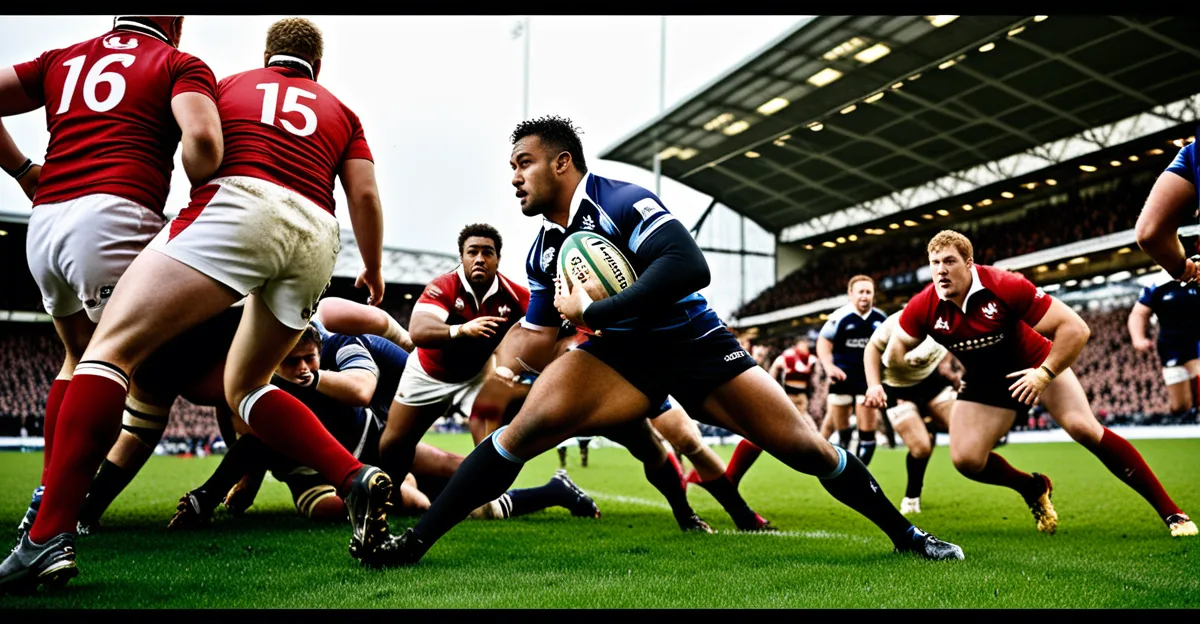Why Is Rugby Union Growing in Popularity Across the UK?
Rugby union, a sport known for its physicality, strategy, and camaraderie, has been experiencing a significant surge in popularity across the United Kingdom. This growth is not just a fleeting trend but a result of several factors that have come together to make rugby union more appealing and accessible to a wider audience.
The Impact of Major Tournaments
One of the primary drivers of rugby union’s growing popularity is the success and spectacle of major international tournaments. The Rugby World Cup, held every four years, is a global event that draws massive audiences and generates immense excitement. The 2015 Rugby World Cup, hosted by England, was a pivotal moment for the sport in the UK, as it brought rugby union into the mainstream and showcased its thrilling matches to a broader public.
Additional reading : How Can British Athletes Innovate their Training Methods?
Increased Media Coverage
The media coverage of these tournaments has been instrumental in attracting new fans. With broadcasts on major channels and extensive coverage by sports news outlets, rugby union has become more visible than ever before. For instance, the BBC and ITV have provided comprehensive coverage of the Rugby World Cup, including pre-match analysis, live commentary, and post-match reviews. This increased exposure has helped to demystify the game for new viewers and highlight its unique blend of physicality and tactical complexity.
Grassroots Development and Community Engagement
The growth of rugby union at the grassroots level is another crucial factor. Initiatives such as the NatWest RugbyForce and the Rugby Football Union (RFU)’s “All Schools” program have been designed to introduce the sport to a wider demographic, particularly in schools and local communities.
Also read : How is the Future of Grassroots Football in the UK Shaping Up?
NatWest RugbyForce
- Community Focus: NatWest RugbyForce is a program that helps local rugby clubs improve their facilities and attract new members.
- Volunteer Engagement: The initiative encourages volunteers to get involved in their local clubs, whether through coaching, administrative roles, or simply helping out with maintenance.
- Financial Support: NatWest provides financial assistance to participating clubs, enabling them to make necessary improvements and host community events.
RFU’s “All Schools” Program
- School Integration: The RFU’s “All Schools” program aims to introduce rugby union into state schools across England, providing resources and support for teachers and coaches.
- Coaching and Training: The program includes coaching and training for school staff, ensuring that they have the skills and knowledge to teach rugby safely and effectively.
- Equipment and Funding: Participating schools receive equipment and funding to help establish and maintain rugby programs.
Women’s Rugby and Inclusivity
The rise of women’s rugby has also played a significant role in the sport’s growing popularity. Women’s rugby has seen a remarkable increase in participation and viewership, thanks in part to the success of the England Women’s team and the introduction of professional leagues.
Women’s Rugby World Cup
- Global Reach: The Women’s Rugby World Cup has become a major event, attracting global attention and inspiring a new generation of female players.
- Professional Leagues: The establishment of professional women’s leagues, such as the Allianz Premier 15s in England, has provided a platform for women to play the sport at the highest level.
- Role Models: Players like Emily Scarratt and Marlie Packer have become role models, inspiring young girls to take up the sport.
Investment and Infrastructure
Investment in rugby union infrastructure has been another key factor. Modern stadiums, improved training facilities, and better equipment have all contributed to a more professional and appealing sport.
Stadiums and Facilities
- Twickenham Stadium: The home of English rugby, Twickenham Stadium, has undergone significant improvements, enhancing the spectator experience and providing state-of-the-art facilities for players.
- Local Clubs: Many local clubs have also invested in their facilities, creating better environments for players and spectators alike.
Cultural and Social Aspects
Rugby union is not just a sport; it is also a culture and a community. The values of respect, discipline, and teamwork that are central to the game have resonated with people across the UK.
Rugby’s Unique Culture
- Respect for the Game: Rugby union is known for its strong emphasis on respect—respect for the game, for opponents, and for referees.
- Teamwork and Camaraderie: The sport fosters a strong sense of teamwork and camaraderie among players, which extends beyond the pitch into social and community activities.
- Social Events: Rugby clubs often host social events, such as post-match dinners and charity functions, which help to build a sense of community and belonging.
Comparison with Other Sports
When comparing rugby union to other sports, such as football (soccer), several factors stand out that contribute to its growing popularity.
| Sport | Popularity in UK | Global Reach | Participation Levels | Media Coverage |
|---|---|---|---|---|
| Rugby Union | Growing rapidly | High | Increasing | Extensive |
| Football | Very high | Very high | High | Comprehensive |
| Rugby League | Niche following | Moderate | Stable | Limited |
Quotes from Key Figures
- Bill Beaumont, Former England Captain: “Rugby union is a sport that offers something for everyone. From the physicality of the game to the camaraderie off the pitch, it’s a unique and rewarding experience.”
- Emily Scarratt, England Women’s Player: “The growth of women’s rugby is incredible. We’re seeing more girls take up the sport than ever before, and it’s fantastic to see the next generation of players coming through.”
- Mark McCafferty, Former Premiership Rugby CEO: “The investment in rugby union infrastructure has been crucial. Better facilities and more professional leagues have helped to elevate the sport and attract new fans.”
Practical Insights and Actionable Advice
For those interested in getting involved in rugby union, here are some practical insights and actionable advice:
Getting Started
- Find Your Local Club: Look for rugby clubs in your area and attend a training session or match to get a feel for the game.
- Take a Coaching Course: If you’re interested in coaching, consider taking a course through the RFU or your local club.
- Volunteer: Volunteering at your local club can be a great way to get involved and contribute to the community.
Tips for New Players
- Start with the Basics: Understand the rules and basic skills of the game before diving in.
- Focus on Fitness: Rugby union is a physically demanding sport, so it’s important to be in good physical condition.
- Join a Beginner’s Group: Many clubs offer beginner’s groups or sessions specifically for new players.
In conclusion, the growth of rugby union in the UK is a multifaceted phenomenon driven by a combination of factors including major tournaments, grassroots development, women’s rugby, investment in infrastructure, and the unique cultural and social aspects of the sport. As the sport continues to evolve and expand, it is likely to attract even more fans and participants, solidifying its place as one of the UK’s most beloved and respected sports.










